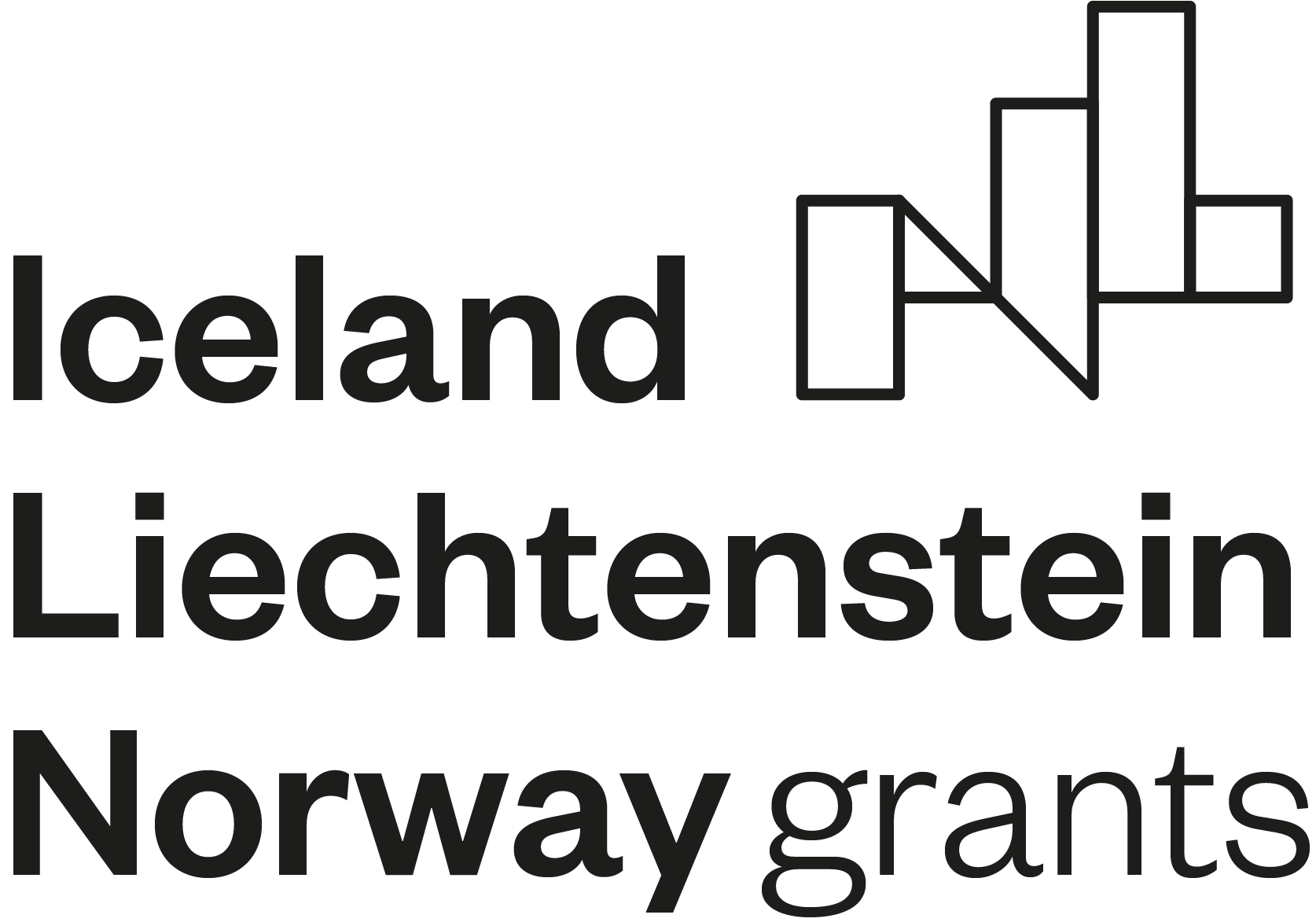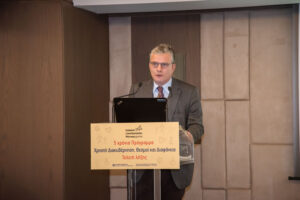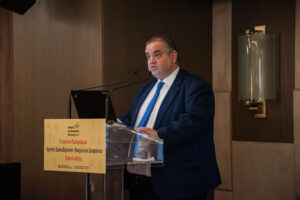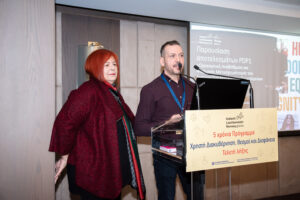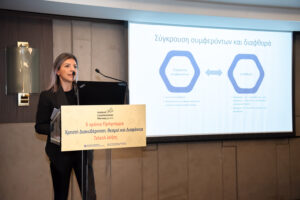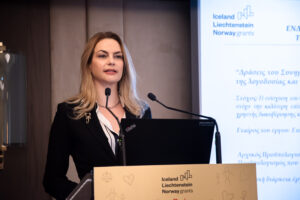“Good Governance, Institutions, Transparency” Programme Report
After years of continuous effort and collaboration among numerous stakeholders, involving thousands of Greek public servants, the programme “Good Governance, Institutions, Transparency” has successfully concluded, delivering significant benefits for Greek citizens.
The Programme aimed to strengthen citizens’ trust in democracy and the rule of law by improving institutional functioning, transparency, and accountability. It was implemented within the framework of the European Economic Area (EEA) Financial Mechanism, supported by Iceland, Liechtenstein, and Norway, promoting a greener, more competitive, and inclusive Europe.
The main interventions of the Program concern the digital modernization of the Citizen Service Centers, the expansion of the services of the Ombudsman and the strengthening of its capacity (in cooperation with the European Union Agency for Fundamental Rights – EU FRA) and the strengthening of the National Anti-Corruption Strategy of the National Transparency Authority, in cooperation with the OECD.
Ø The areas of transparency, accountability and digital technology in the Greek State were significantly strengthened.
Ø A new framework for conflict of interest was created with recommendations for strengthening the system for preventing and managing conflict of interest in Greece so that institutional intervention is ready to strengthen the National Anti-Corruption Strategy.
Ø Approximately 3,000 civil servants participated in a survey of perceptions of attitudes and behaviors and civil servants are trained through webinars for a more transparent and effective Public Administration.
Ø The Digital Transformation of the Citizen Service Centers resulted in a new unified digital system that replaced the outdated system, the new system is interoperable with gov.gr and mitos which records and standardizes all administrative procedures of the Greek State. 1,074 KEPs have been connected to the new system and at least 1.3 million transactions have been implemented in 2024
Ø The services of the Greek Ombudsman have been upgraded, and after 25 years, he has acquired an office in Thessaloniki.
On Friday, December 13, a debriefing session on the completion of the program was held in Athens. Its results were presented in detail by officials from the Ministry of Interior, the National Transparency Authority and the Ombudsman.
In his brief intervention, Deputy Minister of Interior Mr. Vasilis Spanakis emphasized, among other things, how important it is for citizens to see in their daily lives higher speeds, better service throughout Greece at no cost to the Greek, while he thanked the Donor countries for their support throughout the successful effort.
Trust in institutions
The Secretary General of Information Systems and Digital Governance – Ministry of Digital Governance, Mr. Demosthenis Anagnostopoulos, after thanking the Donor countries and all participants in the implementation of the program, emphasized, among other things, that trust in institutions is the goal and that this was significantly strengthened through the program. He focused particularly on the issue of accountability and transparency, saying that the program succeeded in strengthening the dialogue between citizens and the State, with a consequent increase in the trust of the former towards the latter.
160 million euros by 2028 from the new EEA Grants period
In his message during the conference, the Secretary-General of Public Administration, Ministry of Interior, Mr. Ioannis Foustanakis, specifically referred to the digital upgrade of Citizen Service Centers, emphasizing that it is a milestone in Public Administration. “Citizens now have the opportunity to be served faster, more effectively, and primarily digitally. Without queues and delays. More and more citizen requests are being processed using this new system, with significant time and resource savings. Accordingly, the satisfaction level of both citizens and Citizen Service Center employees is high.”
As Mr. Foustanakis stated, collaboration with the OECD and the Donor Countries through the EEA Financial Mechanism provided valuable knowledge from the practices of other countries. The EEA aims to reduce inequalities and strengthen cooperation among countries. This year marks thirty years since the signing of the relevant agreement for activating the EEA. According to him, since 1994, Greece has consistently received funding through the EEA Grants, while for the new funding period 2021-2028, donor countries will allocate approximately 160 million euros.
Ombudsman Everywhere
The Ombudsman, Mr. Andreas Pottakis, stated that with the programme’s completion, the independent Authority enters a new era where it can respond more effectively and efficiently to its constitutional role and obligations toward citizens. “This is a page-turning change that has never happened before and could not have occurred without the valuable contribution of the EEA Grants. The true value of this change will become even more evident in the future.”
The benefits the Ombudsman gained from this programme can be classified into two areas:
a) Outreach and connection with other public bodies – 22 nationwide workshops and 200 working meetings were held, covering all the Ombudsman’s responsibilities, while, for the first time in the institution’s history, a campaign to promote its work and services was launched;
b) Effectiveness – upgrading information systems, systematic training of staff, and establishing an office in Thessaloniki (planned since 1997 and implemented about 25 years later with the programme’s support).
“This programme was not the easiest. But when something is difficult, it is usually very important: Digital Transformation, Good Governance, and Transparency are fundamental for an effective and reliable Public Administration. And it is certain that with the programme just completed, the involved public bodies gained these characteristics,” emphasized the Ambassador of Norway to Greece, Ms. Lajla Brandt Jakhelln.
Greetings were also addressed by: Ms. Ragna Fidjestøl, Director of the EEA Financial Mechanism Office in Brussels; Ms. Gillian Dorner, Deputy Director of the Public Governance Directorate of the OECD; Mr. George Kasapas, Head of the Strategic Planning and International Relations Department, National Transparency Authority; and Ms. Ioanna Tzika, Head of the National Contact Point for EEA Grants, Ministry of National Economy and Finance.
During the conference, experiences gained during the implementation of programme actions were discussed through stories from people who lived the projects’ implementation, while views were exchanged on maximising the programme’s impact in the future.
You can watch the presentation of the results of the “Good Governance, Institutions, Transparency” Programme below:
- The Management of Conflict of Interest in the National Strategic Plan for Combating Corruption
- Unified Digital System Citizen Service Center
- Combating Maladministration in Practice: Training, Prevention, and Empowerment of the Ombudsman
